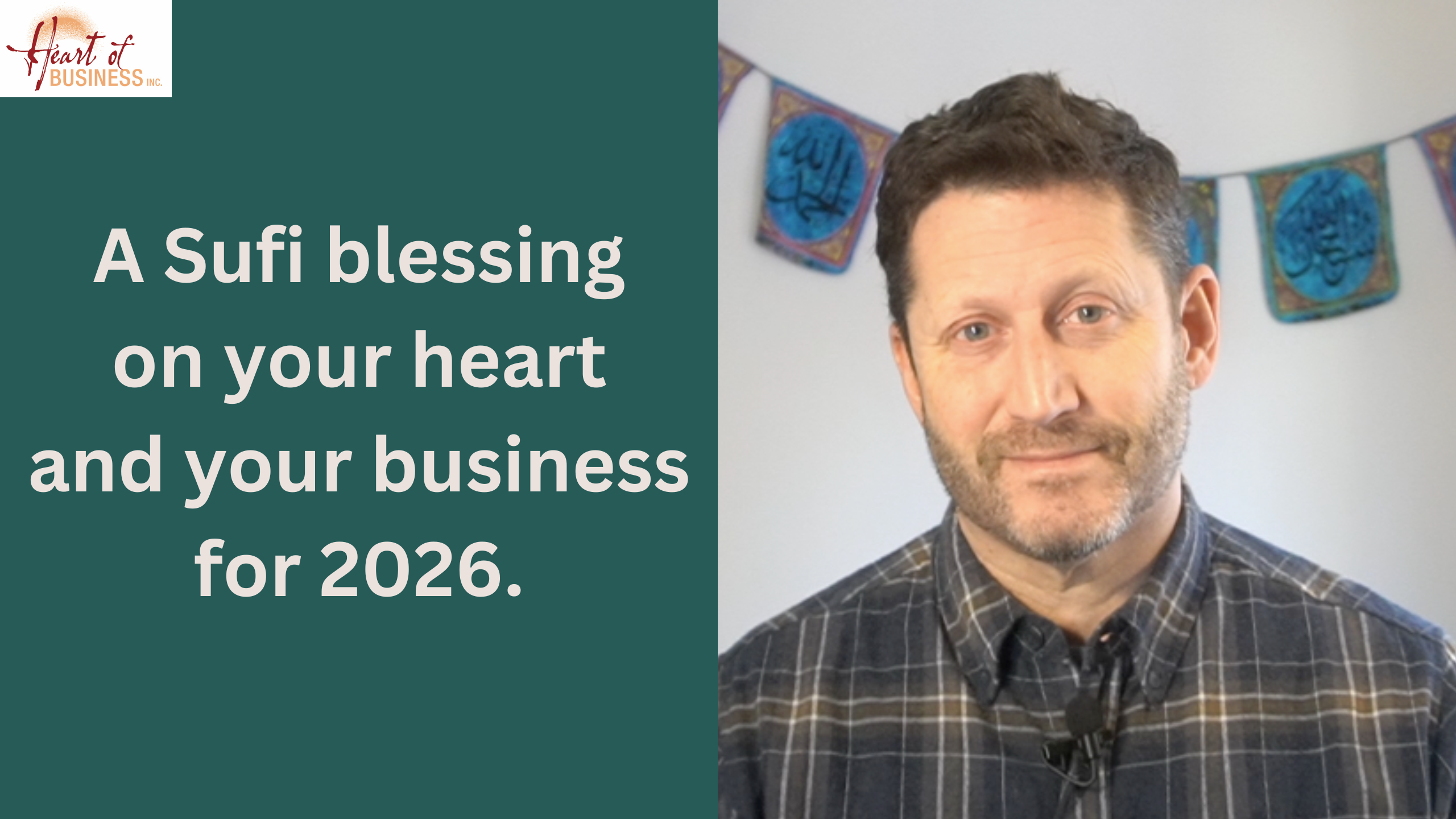 This is a guest post from Adam King, and is part of a series of guest posts based on Is It Possible to Do Financial Harm to a Client?
This is a guest post from Adam King, and is part of a series of guest posts based on Is It Possible to Do Financial Harm to a Client?
A few years ago, I was diving head first into a transition.
I was desperately seeking a way to integrate my offline business into the digital realm. After all, it was the newly found promise land back in 2005-06.
I was watching people come from nowhere to create substantial businesses and was enamored with tales of homeless entrepreneurs suddenly making overnight fortunes.
So, I knew I needed a system and I needed help. I needed someone to teach me, and eventually I found that person. And then I found another one, and another, and another still. And before I knew it, I was buying ebooks, courses, coaching, and signing up for every list imaginable.
That actually doesn’t sound too bad, right? I mean that’s how people start out, by exploring and investigating as many methods as possible. It’s a fine place to be, sitting at the edge of transformation.
Except that it wasn’t a fine place to be. Instead of furthering that transformation, my approach was causing serious financial harm.
Harsh Reality
You see, my offline business was in a low spot. I was in a dip, and I decided that in order to climb out of that low spot I needed to learn the magical ways of the internet. But in order to fast track that learning, I decided I needed to invest in quality education.
But my financial situation was, at that time, bleak. Dismal would be a better word, actually.
I was beyond broke. What little money would come in from my business was getting swooped up by the bank before I could even blink. And the work was so infrequent that there was no such thing as steady cash flow.
I had been at it for 5 years and was exhausted. So, I was looking for a new way to frame it, push reset, and reinvent my business into an epic success.
But, due to my severe financial situation, I was using money that was so scarce and precious to ‚Äúfund‚Äù this education. Money that didn’t end up paying for utilities, food, or covering debt. And sometimes, there wasn’t any money at all, so I would incur more debt just to gain what I thought would be a competitive advantage.
Underdog Complex
Like you, I really love come-from-behind stories. Rocky is one of my favorite movies of all time. In fact, Sylvester Stallone’s own story of creating Rocky is an amazing underdog victory.
So, I figured if I pushed hard enough, took enough risks, and ignored the pain, I’d create a version of triumph for myself. I could see the training montage in my mind, and it was enthralling.
Ok, let’s be honest here. I was actually addicted to the idea of being that triumphant underdog. And it was poisoning my perspective.
Before I go any further, let me touch on these products and coaching sessions I was “investing” in.
I actually did a pretty good job filtering what was fluff and what was quality material. So, I can honestly say, even back then, that I was buying in to some really solid training. These weren’t scam artists or get-rich-quick programs at all. These were serious products meant to produce real results.
But, the results weren’t coming.
The Other Side of the Coin
When we talk about doing no financial harm, the burden immediately falls on the business owner to prevent this from happening. But, as Kate pointed out, it’s a two-way responsibility.
As a customer I wasn’t holding up my end of that responsible exchange.
In seeking out training, I was actually trying to find my big break. That one shinning moment of illumination that propelled me forward into fame and fortune. In short, I was seeking answers that I wasn’t going to find anywhere but inside my heart, mind, and spirit.
Looking at it now, it’s obvious that emotionally and mentally, I wasn’t ready to achieve that elusive level of success. I hadn’t yet done the necessary work on myself to get clear on what that looked like, how I wanted to achieve it, and what I wanted to do with it once I had it.
I was causing financial harm to myself and to the seller because of this approach.
Yes, that’s right. Because I wasn’t able to digest their material and put it into practice properly, I was interrupting the flow of success and the value of the exchange. I was the one messing it all up instead of enabling the flow to continue.
Heart-Centered Holistic Wealth
I’ve come to refer to this cycle as holistic wealth. Wealth that circulates through every aspect of a person’s life, as well as the lives of all who are involved in an exchange.
So, by putting myself at great financial risk and purchasing systems that I wasn’t even ready to begin using properly, I was bringing harm to the overall mission of that particular business owner.
Many of you reading this are involved in creating and running heart-centered businesses. I’m grateful that you are because we need more of you in the world.
But let me challenge you with this:
Be very aware of your role as a customer in your pursuit of heart-based commerce. Be very aware of your position mentally, emotionally, and spiritually as you seek out answers for your growth in business and life.
And in fact, let me extend this challenge even further.
I challenge you to avoid buying into help or guidance until you can sit down and honestly recognize that you have exhausted all possible means of moving forward on your own.
Why? Because it’s vital not only to your success, but to the success of the seller, that you be in the right place and the right time to flesh out the training and teaching you receive from their products or services.
Otherwise you’re wasting precious resources to find yourself back at square one again. And that’s doing everyone involved a lot of harm.
In order to participate in the cycle of holistic wealth, each person must be capable of making the value exchange (money, time, etc.) as well as have the capacity for implementation and application. In other words, just as the seller is able to provide, you the customer must be able to consume.
I know for me, this realization has produced a very conscious method of adopting the role of the customer. I’m much more aware of my place in the overall exchange of wealth be it finances or knowledge.
So, now let’s turn it over to you. What’s your responsibility as a heart-centered customer in preventing financial harm?
Adam King thrives on hope, functions on coffee, and lives to bring convention to its knees. He’s also the author of The Depression Cure for Artists.







11 Responses
This is a great perspective. Having built and run coaching programs for other entrepreneurs, I all too often see the glint of either shiny object syndrome or Silver Bullet mentality in would-be applicants. I’ve literally had people take their last $500 and attempt to invest it in a coaching program thinking that the coach will help them make that money back in the next 30 days.
Really? I know it’s possible on rare occasion for that kind of success, but to invest literally your rent and your grocery money in something like that is crazy. And unethical.
But there’s the rub, eh? In my work, I’ve also met “coaches” who subscribe to some of the hardest sales tactics I’ve ever seen. They are very blunt about Caveat Emptor and make no bones about it in their business.
I have a belief that says we train our clients how to treat us. If we step up on a pedestal and start preaching how amazing we are, and how foolish they are if they don’t work with us (a common marketing strategy), we train them to believe they can’t be successful without us. Is it any wonder they’re plunking down the last of their cash? They’ve literally developed an addiction to us!
Just my two cents, I guess.
Hey Lisa,
“…we train them to believe they can
Thank you, thank you, thank you for this post! Lately, I’ve gotten very comfortable saying “No” to that little kid inside me who wants to buy every ebook, course and resource out there. That kid, my dear love, is stuck on the idea that money will turn away the fear of moving forward into the unknown. I’m so glad I’ve made piece with that voice because It’s so easy to drown in the sea of great, yet expensive, guidance. As I followed this conversation on Mark’s original post and in the comments, I was beginning to feel like an alien for taking full ownership of my responsibility to stay within my budget.
Great work illuminating the issues on the consumer end of the coin.
Hey Marsha,
You’re welcome, you’re welcome, you’re welcome! 😉
I’m so glad this resonated with you. And no, you’re not alone in keeping yourself in check. Learning discernement is a valuable thing. Knowing when to risk, and when to hold tight is tricky at first, but the more you focus on being self-aware and discovering the little vices and triggers like you explained, the easier it gets.
Great comment!
Hi Marsha- please don’t feel like an alien! My post and the comments did seem to focus more on the responsibility of the business owner, but personal responsibility is incredibly important. The trouble is that if you study psychology of selling, it’s very possible to put someone in a position where it is very, very hard to make a clear decision from the heart, and as business owners I think it’s critical to be aware of that.
That does not relieve the client from taking the time and effort to get clear on their own.
Oops, turn piece => peace. Oh well, you still get my point right?
This just posted but I’m sure many more replies will follow: http://djofurnituremaker.wordpress.com/2011/11/22/your-help-is-needed/
I could add more replies that have been left on forums but I’ll leave it alone, for now.
I love this post Adam, and I too have a thing for underdogs and “Self made” success stories. Looking back it’s only when I gave up my “underdog addiction” that I started taking actions that really grew my business. There’s definitely something in our media and society that glorifies underdogs that win big… but we all know overnight success doesn’t come from a silver bullet, but from years of real “hard work”. 🙂
I love this emphasis on being a good consumer, and I teach it in my Money Breakthrough work. It’s hard to go out in the world and ask for reasonable to great money for what we do if we feel victimized or resentful of money we’ve spent.
I got great returns on a high-end coaching training I invested in because I had spent the previous 11 years (!) building a foundation of clarifying who I was and what I had to offer, developing content, and running programs that I could then boost.
Great post Adam, I can sooo relate! I think we’ve all been there with shiny object syndrome – and it doesn’t matter how much or how little we’ve invested – we’ve all probably bought training, coaching or info products before we were ready to actually *apply* them. And in the end, whether you spent $500, $1000, $10,000 or $100,000 it’s all just as painful if you don’t use it! The only thing that has saved me any expenditure horror stories is my own fiscal conservativism – and the watchful eye of my husband (accountability) hasn’t hurt either. But in the end it’s all relative. A $1,000 expense when the money isn’t coming in might as well be, and can feel like, $10,000 if you can’t apply what you bought fast enough to grow the business.
It took me almost 2 years to not only get a clear picture of what and who is out there, but to hone my discernment in terms of who I’d want to work with and what I actually needed. I’m happy to say I’ve invested in some great and truly helpful info products and training courses that are probably worth 10 or 100 times what I paid if actually applied and applied properly. In retrospect I’m glad I didn’t buy into any big ticket coaching programs. Every time I had the chance I knew I wasn’t ready to actually do the work they involved. If nothing else, I’m determined to get my money’s worth when I spend it!
Which leads me to my main point – by truly taking a step-by-step approach to building a business, by “exhausting all possible means of moving forward on one’s own” one learns implementation and application skills which in turn develop the readiness, the maturity needed, to grow bigger. What the big-ticket “build an empire” programs or the component “get rich quick” silver bullet schemes and tools completely sidestep is the common sense logic and sequence of what to do first, second, third before even considering developing a multi-pronged online enterprise. That in particular is what I find unethical about many of those programs.
My favorite line from this post: “I challenge you to avoid buying into help or guidance until you can sit down and honestly recognize that you have exhausted all possible means of moving forward on your own.” I’ve found that as BOTH a customer and provider, *without exception* my greatest successes were when I focused on doing one thing and doing it well and completely. Focus and dedication coupled with determination to implement (despite fear and psycho-barriers) simply CANNOT be underestimated!
Adam,
Your post hit me right where I live, or at least DID live, thank God! I, too, have been guilty of the internet marketing/self-improvement junkie habit. I never could get at what was driving this until I read your post.
“As a customer I wasn